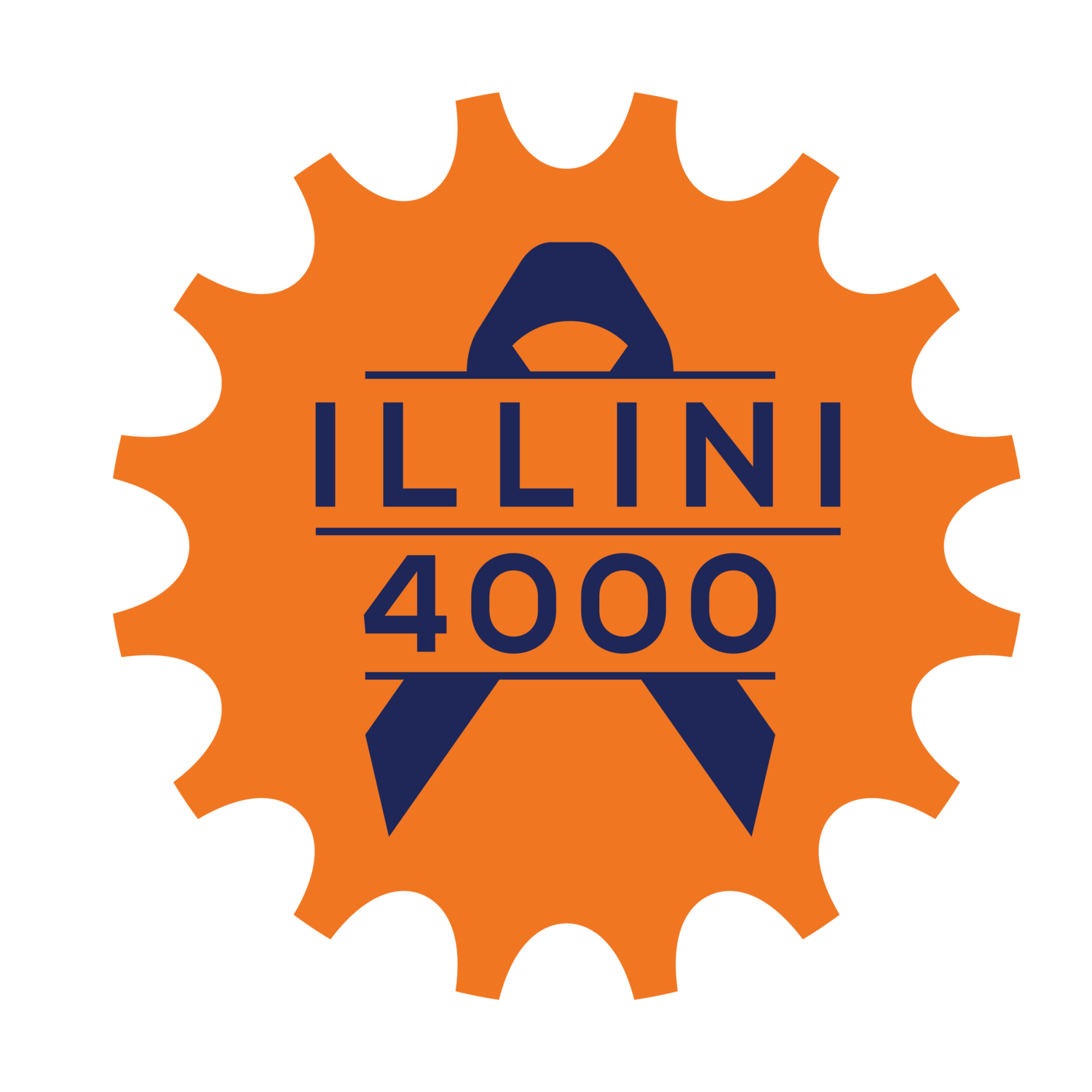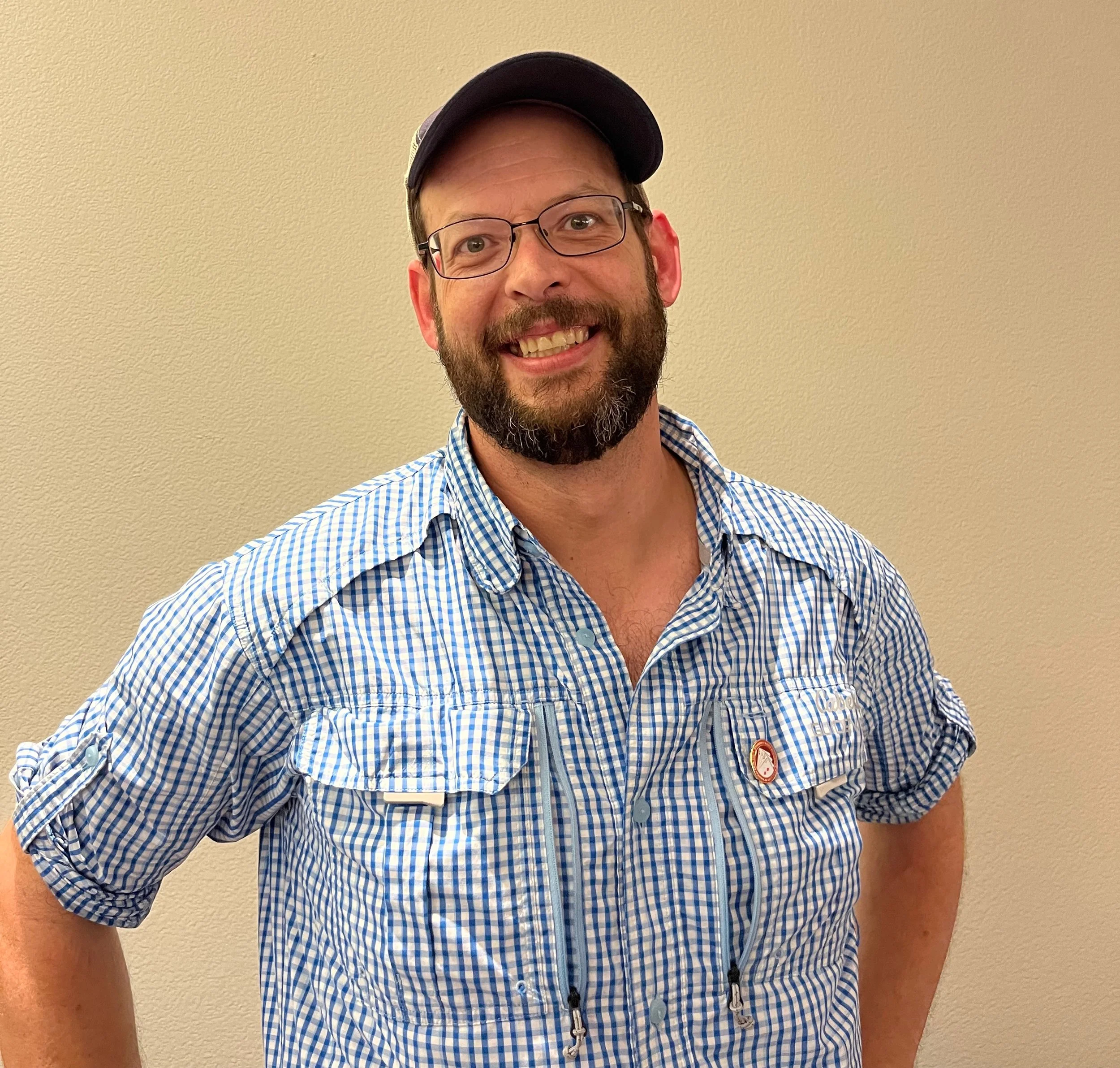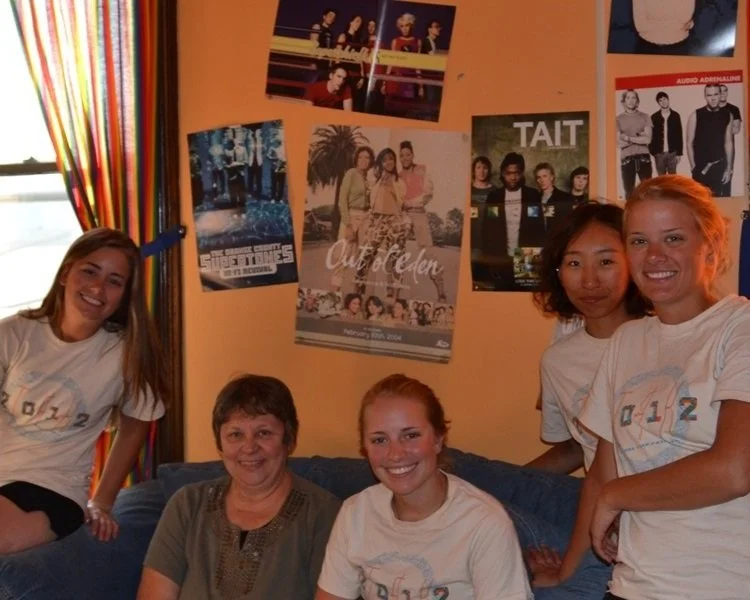“I grew up knowing I wanted to make money, and that was it. So I went to school to be an accountant, and I was like I don’t really care, I just want to move out, make some money. But after my Dad got diagnosed with cancer, it really made me think about my values, and my big value is family now. I changed my major, I want to be a grief counselor, to help cancer patients. That’s how it’s really affected my life. I’m going from a six figure job, to maybe only like 50,000 a year, but it makes me happy knowing I can help people like my father, and other people who don’t have that support system. Cancer’s affected me by giving me a positive outlook to help the community.”
Tracy Huddleston
“There was so much good that came from cancer. We would sit around the table at night after Marissa was diagnosed with cancer and talked about the good things that happened in our life because of cancer. Like the people that were amazing or the way that we saw generosity, just overflowing towards our family. It was amazing to see that generated towards you. People that you didn't know, did know forever, or people that were poor giving you their last amount of money because they thought that you might need it. It was just an amazing, incredible adventure.”
Glen S. Robertson
“I was forced to grow up earlier than I normally would have. When you were confronted with situation like that, it made you look at the situation from an adult prospective, rather than that of 12 year old boy. I did the only thing I could, which was to be there for my mom. You do gain a stronger appreciation for life, what it means to have a family when one of your family members got something like that. Be there for them and be there as much as you can. It would be really easy to deny that it is happening, to ignore the situation. But you can’t, the person suffering is going to need you. Even if you are young, you can still help and you can make it easier for the person going through it, and they are going to need you to do that.”
Dorothy Callison
“Fight, don’t let it get you. Fight. I had grandchildren born the whole 10 years, I had something to fight for, I had new babies, my daughter’s got seven kids and the only reason she has 7 is because she had them all during the whole 10 years, she was pregnant the whole time pretty much. Fight. Don’t just let it go. Even though I am where I am, I’m alive. And I have done a lot in the last 13 years that have helped other people. Some people just figure they have cancer and that’s it. Fight. Don’t let it get ya’. They’re curing an awful lot of it these days.”
Debbie Richardson
“At one point I did think, why me? What did I do? But it’s nothing that you’ve done: it’s just something that happens. But I do think that your attitude, your outlook on things, has a tremendous effect on your recovery. I think it’s so easy to feel bad for yourself, but you have to look beyond that. But I really don’t think God is finished with me yet. I still think there are things He has in mind for me that He wants me to do. I don’t feel that my life is over… I’m happy to be getting older, which means I’m still here.”
Clayton Brown
“Through different support group situations, it’s amazing how, once you have cancer, you start meeting people that have cancer. After having cancer in the family, you become aware that we’re a community, and we need to support each other. We need community. Our American culture tells us that we can be an island to ourselves, we’re strong, we can survive, we can do it on our own. I don’t believe that’s the way God intended us to be, and I don’t think that is a true statement. I think the truth is, we are weak. We are frail. We do struggle. In these kinds of times, we need each other. Be with your friends, be with your family.”
Chris Schubert
“When she got down to 86 pounds, I really thought she was going to die. But she didn’t. She went from being paralyzed from the waist down and having to be wheelchair bound, and having to catheterize herself, to now she runs regularly, and she got married last September. To me, it’s a miracle. Like I said, when I was in medical school, everyone died from Ewing Sarcoma. Nobody survived. That was a resurrection for me of my faith, and now there are routinely people that survive from Ewing sarcoma. As a physician, I realized that a lot of things have changed.”
Charles Staben
“Be a little bit more optimistic than you think you need to be. Cancer is a terrible diagnosis. To hear that you have cancer is really quite disturbing. My wife personally told me that I had cancer. She’s a physiologist and had my tests rushed. At the time of my diagnosis, approximately two out of three men diagnosed under age 45 died within five years, so to hear from your wife that you have cancer and knowing that your statistical odds being a two out of three death rate over five years is quite disturbing, so I feel very fortunate to be here.”
Betty Schatz
“It’s taught me to take one day at a time and to lower my expectations. I shouldn’t expect people to treat me differently because I had cancer. It affects everybody. Even if you don’t have cancer yourself, you know people who have it or you know people whose family is going through this. You just take everything one day at a time. You don’t think about what’s going to happen in the future.”
Leanne Eagleman
“There’s a lot of things I think that the American Cancer Society is doing, and providing to people all over the nation, you know. And myself, going to Washington D.C., during the celebration on the hill, that event was to get our legislators in Washington DC to support all American Cancer Society’s efforts. We got their signatures, and I was happy about that. That was a goal that we met, getting their signatures, and their promise to help. I will do anything I can.”
Bryan Bailey
“Everybody hears the word “cancer” and they are immediately scared. They immediately think they are going to die. I didn’t have those feelings, but everyone around me had those feelings and those thoughts. I felt like I had to be the strong one and the one that had to hold everyone together during that time. We didn’t have any history of cancer in the family; I was the first member in my entire extended family to have any form of cancer. It brought my family together and raised awareness, especially through my family for testicular cancer.”
















